Charting the course of executive EMBA alumni
From motivations for starting an executive MBA to outcomes three years after finishing it, the FT ranking team delved into the 2022 EMBA Ranking data to explore graduates’ progress. In this edition, we focus on student diversity in business schools and look at factors affecting alumni salaries, plus the topics taught best and worst.
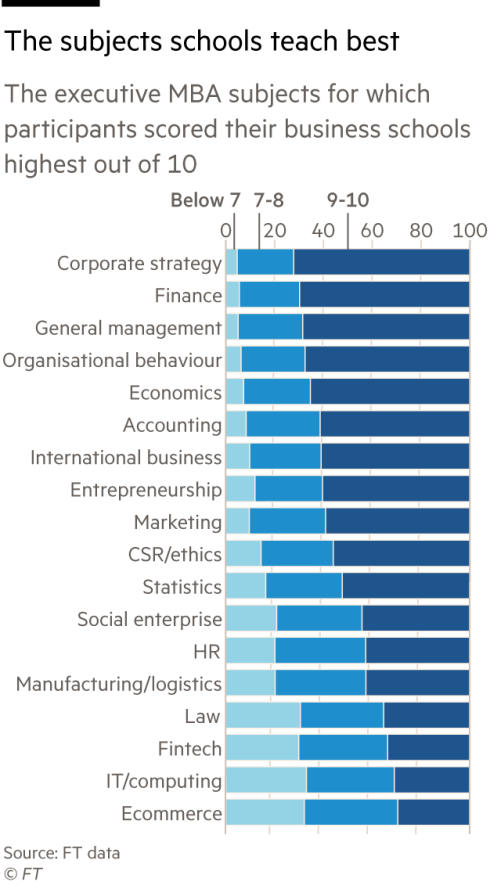
Alumni thought corporate strategy, finance, general management and organisational behaviour were taught best.
FT Executive MBA ranking 2022: the top 100
Find out which schools are in our ranking of EMBA degrees. Also learn how the table was compiled and read the rest of our coverage at ft.com/emba.
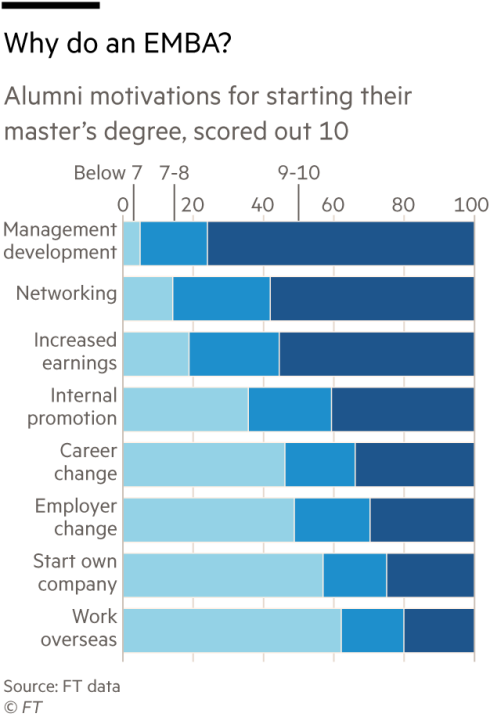
Developing management skills and networking topped participants’ reasons for embarking on an EMBA programme.

Diversity tiers were computed using scores based on ranking data on gender (parity gives maximum score); international student diversity (percentage of foreign students), and the range of sectors from which schools recruit. Notably, alumni of the 20 schools in diversity tier 1 (the most diverse) and tier 5 (the least diverse) have the lowest salaries.
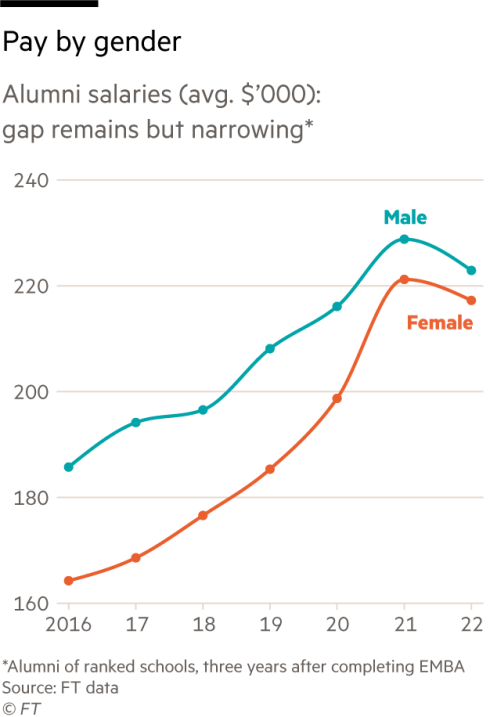
Schools in diversity tier 1 have the most female students and female alumni are still paid less, despite the gap narrowing.
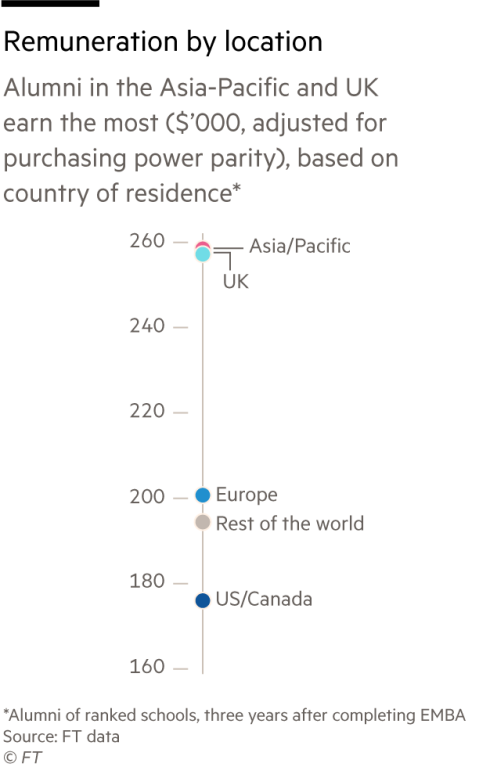
Alumni location is also a cause of salary variation. There is a gap of $80,000 between the highest earning region, Asia-Pacific, and the lowest, the US and Canada, after adjusting for purchasing power parity. Only nine per cent of schools in diversity tier 1 are in Asia-Pacific or the UK and only a quarter of tier 1 alumni work in those regions.
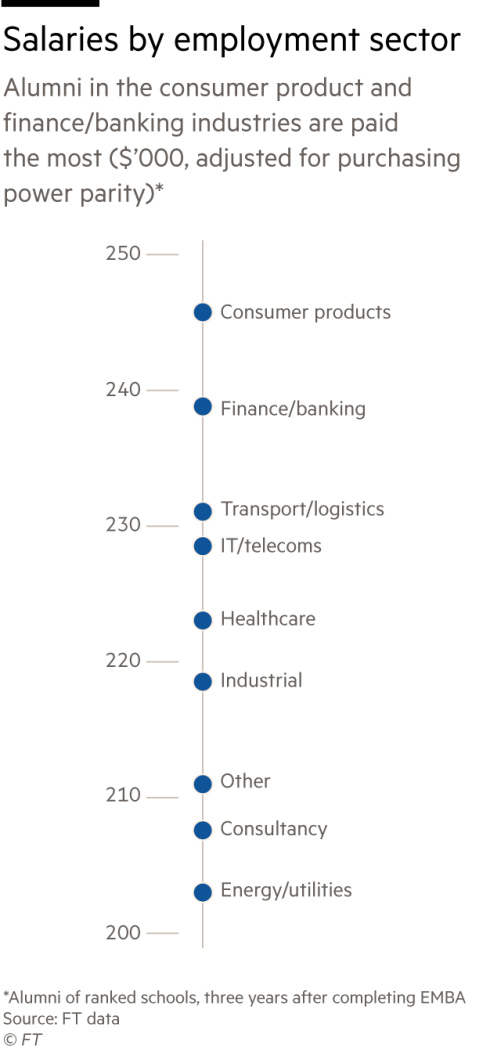
Another factor that could affect salaries is the sectors from which schools in each diversity tier recruit. A higher diversity score is given to schools that recruit from a wider range of sectors, including industries that pay less. Many students will continue to work in their pre-EMBA sector.
Digital conference: Spotlight on the Executive MBA
Join global education editor Andrew Jack and business school experts around the world for a free online event on Wednesday October 19, focusing on career impact, insights into the 2022 ranking, and themes from managing disruption to ESG. Register here
This story originally appeared on: Financial Times - Author:Chris Campbell
























